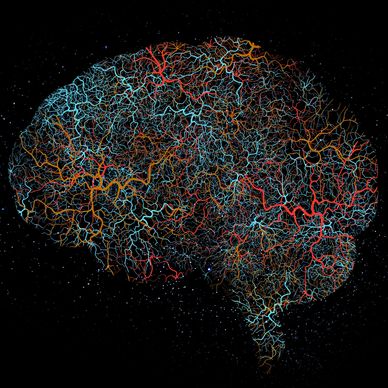Colourful Minds Therapy
Mental Health Matters for Children, Young People and Families

Mental Health Matters for Children, Young People and Families


From birth to around age 25, the brain is developing at a remarkable speed.
This is a time of heightened neuroplasticity, when experiences, both good and bad, shape the brain and when the foundations of emotional regulation, communication, identity, personality, relationships and behaviour are laid.
Positive relationships, supportive environments and opportunities for self-expression strengthen resilience and self-esteem.
Adversity, trauma and chronic stress can disrupt brain development in childhood through to young adulthood and can have lasting effects on learning, emotional wellbeing, habits, behaviours, relationships and future life outcomes.

This is the first generation to grow up entirely online. Social media is not just a pastime; it is the backdrop of friendships, aspirations and sense of self; likes, comments and follower numbers can define self worth for many young people today.
For some, the online world is a source of creativity and connection, but for others, it is a place of exclusion, comparison, pressure, stress and trauma.
Young people are vulnerable to:

This generation is also growing up in the shadow of a global pandemic; amidst political and economic uncertainty, climate anxiety and a chronic shortage of accessible support services.
The mental health of children and young people matters more than ever. We are currently experiencing a serious youth mental health crisis:

What happens in childhood doesn't always stay in childhood. Early experiences can leave a huge and lasting impact on adult life.
Crucially, it isn’t the presence of early adversity or experience of trauma that has the most impact on long-term mental health or future life outcomes. It is whether or not the child or young person receives empathic, attuned support during and after experiences of adversity or trauma.
Parenting isn't easy and parent and caregiver mental health, capacity and resources to support children and young people is crucial. Support for families cannot be overlooked when aiming to support child and adolescent mental health and wellbeing.

Protective environmental factors, such as empathic and attuned parenting, peer and family relationships, supportive teachers, education systems and trauma-informed mental health support can make a huge difference to children and young people's mental health and emotional wellbeing; well into adulthood. Research shows that such support:

Mental health matters, however, mental health challenges need not be permanent; nor do they define a person.
The brain has a remarkable capacity to heal, grow and change - with the right support, people and environment.
Copyright © 2025 Colourful Minds Therapy - All Rights Reserved.